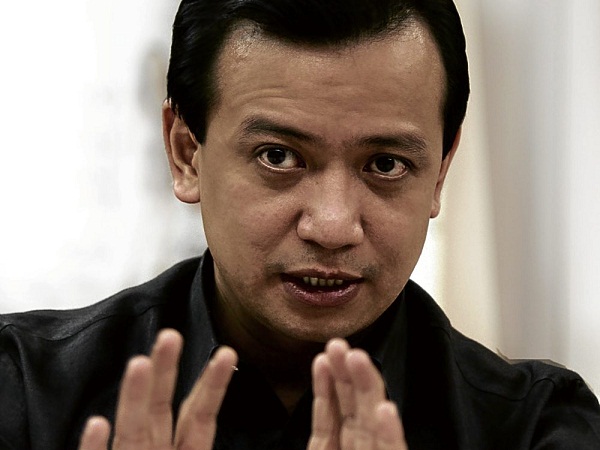Trillanes: How to survive detention 101
Who can give wiser advice to would-be detainees than someone who has been there, done that?
Sen. Antonio Trillanes IV, a former navy lieutenant who was jailed after leading the 2003 Oakwood mutiny, said a detainee must establish a routine to cope with being away from the rest of the world.
Trillanes spent seven years in detention for coup charges against then President Gloria Macapagal-Arroyo, four of which were at the Philippine National Police Custodial Center at Camp Crame.
The PNP Custodial Center is the place where lawmakers charged with plunder and graft in connection with their alleged misuse of the Priority Development Assistance Fund (PDAF) would be locked up upon orders of the Sandiganbayan.
Word of advice
Article continues after this advertisementWhat advice would Trillanes give his colleagues in the Senate if and when they find themselves in confinement at the same custodial center?
Article continues after this advertisement
“It’s not how a 90-year-old should be treated,” Trillanes told the Inquirer by phone. “There’s no 90-year-old in the country who is detained. I don’t look at it as giving him (Enrile) special treatment. I am just being fair.”
The two senators had been at loggerheads over several issues, constantly trading barbs against each other.
But Trillanes came to the defense of Enrile, saying the old man would not survive the conditions at the custodial center.
“It’s very hot in there. Not only is he 90 years old, his body is also used to a cool environment. Matutuyuan siya ng pawis doon (His sweat would dry up there), which won’t be good for him,” Trillanes said.
A few months ago, Revilla reportedly asked Trillanes how life was in detention.
“He was genuinely interested in [knowing about it],” Trillanes said. “In a light manner, I told him it wouldn’t be as difficult as you’d expect. You’d be able to adjust right away.”
Stripped of luxuries
He told Revilla that in detention, one is “stripped of all luxuries in life.”
“But the sooner you establish a routine in that dire condition, the days would be faster,” he said.
Trillanes added that his military training, as well as having his fellow Magdalo officers and men as companions in detention, helped him survive confinement.
While in detention, the Navy officer-turned-politician read books, studied documents, met with his legislative staff, entertained visitors, played basketball, took naps and walked around the facility “to reflect.” Of course, there was always the TV and several movies on DVD to watch.
At one time, he had then Senators Benigno Aquino III and Mar Roxas as visitors.
A few months into his presidency, Mr. Aquino granted amnesty to Trillanes and all those charged with coup d’etat, paving the way for their release.
When he was elected senator in 2007 while in detention, Trillanes said he asked permission from his police custodians to hold hearings for the committees he chaired.
“It’s subject to the approval of the custodians and subject to security considerations,” he said.
Trillanes said custodians should be treated with respect, regardless of the detainee’s rank or position.
“You’d be reciprocated with respect,” he said.
While in detention, he said he was able to do legislative work as well as advocate issues of national concern that would “promote the interest of the majority and protect the interest of the minority.”
There’s nothing that would stop Enrile, Revilla and Estrada to do these as well, he said.
RELATED STORIES
Trillanes: Considerations should be given to ‘senior’ Enrile
Trillanes: I did not get special treatment in jail
Janet Napoles and the pork barrel scam
